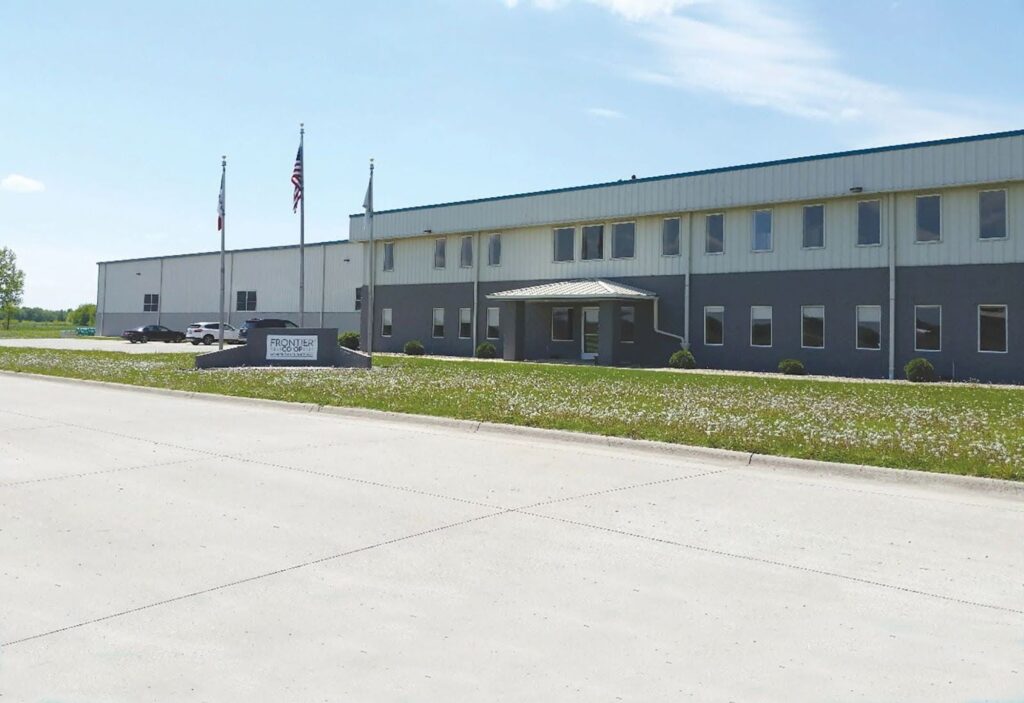CISS plans to expand greenhouse, offering food and opportunity to Des Moines residents

KATE HAYDEN Nov 17, 2020 | 9:00 pm
3 min read time
792 wordsAll Latest News, Arts and Culture, Iowa Stops Hunger, Statewide NewsDesign plans for the expanded greenhouse project provided by Central Iowa Shelter & Services.
As Central Iowa Shelter & Services plans to expand agriculture opportunities for residents in downtown Des Moines, its new greenhouse project claims a bit of inspiration from deserts in the Middle East.
Don and Madelyn Schoen were first introduced to hydroponic systems during a trip to Israel a few years ago when they visited a fish farm operating in the middle of the Negev Desert. Madelyn Schoen died in February, but when her son Justin, a member of the CISS board of directors, learned the organization was planning to expand the Mulberry Street facility, the opportunity seemed right to help expand the small greenhouse already serving CISS residents.
CISS has raised about $200,000 of the greenhouse’s $270,000 total cost. CISS is developing 4 acres surrounding the facility into a community agrihood. The Schoen family committed $50,000 to the expanded greenhouse and aquaculture system, and offered an additional dollar match for donations up to $75,000.
“I figured if they could raise fish in the middle of the desert, we could raise fish in the middle of the city,” Don Schoen said. “This is just a natural fit, and it’s a lot easier to do a fish farm than a hog farm in the middle of downtown.”
The greenhouse itself will cover 3,200 square feet and produce about 8,000 pounds of tilapia and 160,000 pounds of lettuce trays yearly, providing a renewable source of protein to residents at CISS. Last week, CISS installed an indoor system in the existing food pantry that produces up to 100 pounds of lettuce yearly. Once the greenhouse project is finished, the indoor system will be used to start lettuce seeds, and trainees will move growing lettuce out to the greenhouse to allow for a continuous growing cycle.
The full agrihood will feature two zones. One fenced-in zone will include the expanded greenhouse and be available to CISS clients only. The larger, 4-acre space will also be fully fenced, but the gates will be open to the public from sunrise to sunset, similar to gardens in French culture, said CISS CEO Melissa O’Neil.
“Anybody can go for a walk and just grab a tomato if you want and take it — apples, peaches, pears, plums, nectarines, anything grown in the fruit orchard on our farm. All we ask in return is to help us; if you see weeds, pick them,” O’Neil said.
When completed, the full agrihood and greenhouse project will make the Mulberry Street shelter self-sufficient. It will also allow CISS to sell excess fruits, vegetables and fish wholesale to Des Moines retailers and likely will provide enough to donate to other local food pantries, O’Neil said.
The expanded greenhouse project will also expand job training opportunities open to CISS emergency shelter residents. The existing greenhouse offers training opportunities to eight residents during the summer months; CISS hopes to hire 20 part-time trainees year-round when the greenhouse is completed. Trainees will learn to operate hydroponic aquacycle equipment and earn licensing in pesticide application, and receive job-seeking assistance from CISS staff for local employers.
“When it comes to the agrihood, we’re trying to tackle this issue from multiple different directions. It’s one thing for me to give you a fish and give you a home, and it’s another thing for you to earn it, and earn it because you want to do it yourself,” O’Neil said. “We’re tackling it from two sides: How do we help make sure that people have the housing stock that they need, and then how do we make sure they’re able to sustain it and be self-sufficient without us?”
The agrihood is just part of a series of recent expansions underway at CISS. A $4.9 million expansion to the Mulberry Street shelter is already under construction, which will add 24 studio apartments for individuals experiencing long-term or chronic homelessness. The CISS board is also considering a proposal to build a new facility with one-bedroom apartments designed as transitional housing for clients recovering from substance abuse and addiction issues. The “Haven House” will be a steppingstone for residents fearful of moving out of CISS’ studio apartments and out on their own, O’Neil said.
“I think it just goes to show that as a community, we like to think big and challenge the norms of what a midsized city in the Midwest can do to help its residents,” Justin Schoen said.
Iowa Stops Hunger is a yearlong Business Publications Corp. initiative to bring awareness and action to food insecurity in Iowa. Read additional stories on Iowastopshunger.com.
Nov. 17 4:08 p.m.: Correction: Madelyn Schoen’s name was misspelled in an item about a Central Iowa Shelter & Services greenhouse project in Tuesday’s PM Daily.









